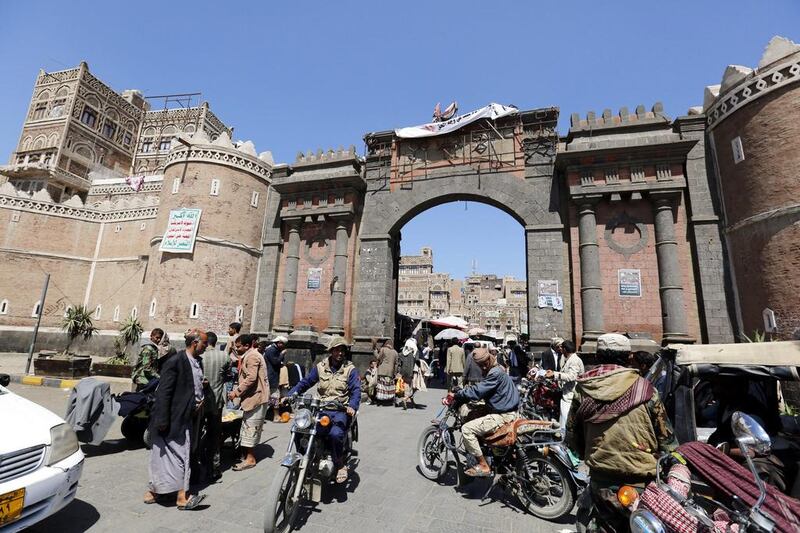ADEN // Houthi rebels are pocketing the tax money collected in the provinces they control to fund their war against the government.
Civil servants throughout Yemen have not received their September salaries from the central bank and the Houthis have resorted to asking for donations from impoverished residents.
The Yemeni government moved the central bank from Houthi-held Sanaa to Aden – which is under government control – late last month, claiming the rebels had been drained the reserves.
Bandar Al Shihari, an employee in the administration of Ibb University, says his monthly salary of 50,000 Yemeni riyals (Dh734) is barely enough to support the five members of his family. But like all other employees at the university, he has yet to receive last month’s wages.
"I am dependent on credit from a shopkeeper, and it's lucky that the shopkeeper is my cousin, but the main problem was when the Houthis came with their box to ask us to donate to the central bank. Even though we're not receiving our salary, they still ask people for donations to give to the central bank," Mr Shihari told The National.
In a speech last month, Houthi leader Abdul Malik Al Houthi, even asked for money from the poorest Yemenis. But although the Houthis claim this money is going to the central bank in Aden to help pay for salaries, it is in fact funding the rebel forces fighting the internationally-recognised government of president Abdrabu Mansur Hadi.
Shakeeb Al Hobaishi, a member of the central bank administration in Aden, said that the bank had already started to pay the salaries of employees in the bank’s Aden, Marib and Hadhramout branches. He said the delay was due to the bank relocating and transferring data and that all public employees would be paid in a week.
Mr Al Hobaishsi said one of the problems was a shortage of Yemeni riyals, but that Saudi-led coalition nations fighting on behalf of the government “will support the bank”.
foreign.desk@thenational.ae





